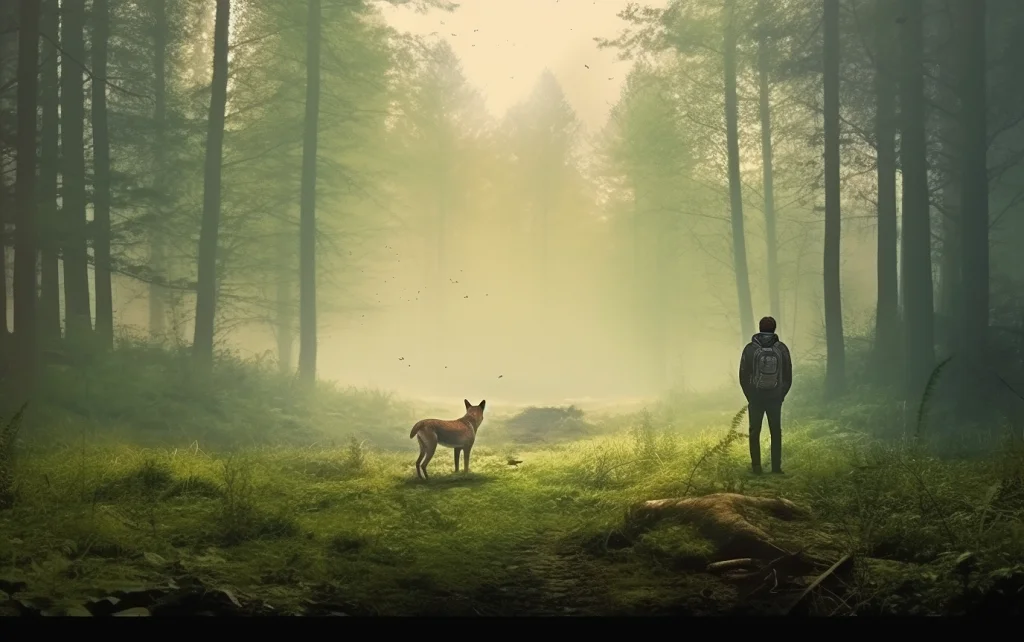
When it comes to deer hunting, having a skilled and reliable hunting companion can greatly enhance your hunting experience. A well-trained and suitable dog can help track, flush, and retrieve game, making your hunting trips more successful. In this comprehensive guide, we will explore various deer hunting dog breeds and provide insights on how to choose the right breed for your hunting needs.
Table of Contents
Deer hunting dogs play a vital role in the hunting process. They possess natural instincts and abilities that are specifically suited for deer hunting. Some of the benefits of using deer hunting dogs include improved tracking, enhanced scent detection, and increased game retrieval efficiency.
There are different types of deer hunting dogs, each with its own set of characteristics and strengths. These include scent hounds, sight hounds, and versatile hunting dogs. Understanding the differences between these types will help you determine the most suitable breed for your hunting style and preferences.
Bloodhounds are renowned for their exceptional scent-tracking abilities. With their keen sense of smell and determination, they excel at tracking wounded or elusive deer. Their droopy ears and wrinkled skin make them distinctive among scent hound breeds.
Beagles are small to medium-sized dogs known for their friendly nature and excellent scenting abilities. They are particularly adept at tracking deer and can work well in a variety of terrains. Their compact size and high energy levels make them agile and versatile hunting companions.
Greyhounds are renowned for their incredible speed and agility. While they are traditionally associated with coursing and racing, they can also be utilized in deer hunting. Their exceptional eyesight and quick acceleration make them ideal for pursuing deer in open areas.
Afghan Hounds are elegant and graceful dogs with a keen sense of sight. Although they are often associated with their stunning appearance, they are also capable hunters. With their agility and endurance, they can effectively chase and catch deer, particularly in rugged terrains.
Labrador Retrievers are versatile hunting dogs known for their intelligence, trainability, and strong retrieving skills. They are excellent companions for deer hunters, as they can track, flush, and retrieve game. Their friendly and gentle nature also makes them great family pets.
German Shorthaired Pointers are highly versatile hunting dogs with a strong sense of smell and exceptional pointing abilities. They are proficient at locating and pointing out the presence of deer, assisting hunters in closing the gap and making successful shots. Their high energy levels and endurance make them well-suited for long hunts.
When choosing a deer hunting dog breed, several factors should be taken into account. These include the hunting terrain, the type of deer hunting you plan to engage in, your level of experience, and the dog’s temperament and trainability. Assessing these factors will help you make an informed decision.
Regardless of the breed you choose, proper training and socialization are essential. Training your deer hunting dog to obey commands, track scents, and retrieve game is crucial for a successful hunting partnership. Additionally, exposing your dog to various environments and introducing them to other dogs and people will ensure they remain well-behaved throughout their hunting journey? Let’s explore the important aspects of training and socialization for your deer hunting dog.
Proper care and maintenance are important for keeping your deer hunting dog healthy and prepared for the hunting season. This includes regular exercise, a balanced diet, grooming, and veterinary check-ups. Taking care of your dog’s overall well-being will contribute to their performance in the field.
When hunting with dogs, it’s crucial to prioritize safety for both you and your canine companion. This includes using appropriate safety gear such as reflective vests, ensuring proper hydration and rest breaks, and maintaining control over your dog during hunts. Additionally, understanding hunting regulations and practicing ethical hunting behavior is essential.
Ensuring your dog’s health and well-being is vital for their longevity and performance. Regular veterinary visits, vaccinations, parasite prevention, and monitoring for any signs of injury or illness are crucial. Additionally, knowing how to recognize and respond to common hunting-related health issues will help you provide timely care to your dog.
Training and building a strong bond with your deer hunting dog are key components of a successful partnership. Establishing clear communication, using positive reinforcement techniques, and spending quality time together will strengthen the trust and teamwork between you and your dog.
The partnership between a deer hunting dog and its handler can be incredibly rewarding. The shared experiences, the thrill of the chase, and the satisfaction of a successful hunt create lasting memories. Cherish these moments and appreciate the unique bond that develops between you and your loyal hunting companion.
Choosing the right deer hunting dog breed is an important decision that can greatly impact your hunting success and overall experience. By considering the characteristics, strengths, and requirements of various breeds, as well as taking into account your hunting style and preferences, you can find the perfect hunting companion. Remember to prioritize training, care, and safety to ensure a fruitful and enjoyable partnership with your deer hunting dog. Happy hunting!
When you’re setting up a long-range rifle scope, one of the most important decisions you’ll…
For many shooters, the objective lens size is one of the first things they look…
For decades, the 3–9×40 rifle scope has been one of the most iconic optics used…
Tuning a compound bow can feel intimidating, especially if you’re new to archery or don’t…
The world of compound bows is filled with innovation, craftsmanship, and brand loyalty. Among all…
A hunting rifle is one of the most trusted tools in the field. It doesn’t…
This website uses cookies.